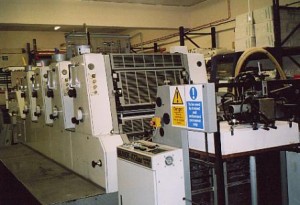Little Davids vs. the Publishing Goliaths?
Last week, I wrapped up some editing work supporting my friend Mike’s soon to be released book, GRACEONOMICS. Mike is a brilliant visionary, so it wasn’t surprising to me that he opted for a non-traditional publishing format for this project (even though he has published and will continue to publish works with major publishing houses).
 (1,000 inaugaral copies of the book will be given away, by the way, at Catalyst’s People of the Second Chance evening. Though if you aren’t going to be at Catalyst, you’ll be able to snag a copy–and you’ll want to–at Amazon and the POTSC website. More details to come.)
(1,000 inaugaral copies of the book will be given away, by the way, at Catalyst’s People of the Second Chance evening. Though if you aren’t going to be at Catalyst, you’ll be able to snag a copy–and you’ll want to–at Amazon and the POTSC website. More details to come.)
It’s not just Mike though. Earlier last week, another friend and cultural influencer told me he wouldn’t mind starting a self-publishing imprint to serve people like us (established writers/creatives) some day. This type of endeavor would blend self-publishing options with creative expertise to aid in laying out, designing, marketing and distributing an author’s book.
Also this month, I talked to the guys at Creative Fuel, who are already supporting non-profits and authors with alternative-publishing design, print and social media support.
This leads to TODAY, when marketing guru and author of 12 best sellers Seth Godin announced that Linchpin will be his last book printed via traditional publishing.
Tim Ferriss, best-selling author of the Four Hour Work week, weighed both sides at his blog as well.
Put this altogether and I’m starting to see a trend. YOU?
As a writer, I’m paying attention.
Yet, even with all this frenzy about self-publishing, I still sat down for lunch with one of the staff at my traditional publisher last week. (Self-publishing won’t get you free Japanese food.) While I see the obvious gains in using an alternative publishing format (like keeping more of the profits for the writer), there are some tricky details too (like mass-marketing and distributing the end product) that make me glad to be in relationship with an established publisher and its connections. Not to mention, I value the relationships I have with employees of the publishing house–some of whom bring expert, informed opinions that help shape my work.
But the non-traditional publishing options in the air do make me wonder if writers like me need to think carefully about where to position ourselves–between the existing publishing houses and more unconventional printing opportunities–in case publishing changes drastically over the next generation.
What do you think? Would you wager on the publishing giants or are you betting on the little guy?


Nicole Unice August 30, 2010 (6:26 am)
Sarah-
Great article…I couldn’t agree more. I’ve learned from publishing The Divine Pursuit several things. Pros: working with my pick of creatives (whom I happen to already be friends with), very low costs, quick turnaround time, and a big margin. Cons: distribution, confidence that comes from working with editing and publishing professionals, the “name” behind your work. I”m glad I did it, but I think, like you, a hybrid of self and traditional publishing would serve many authors well.